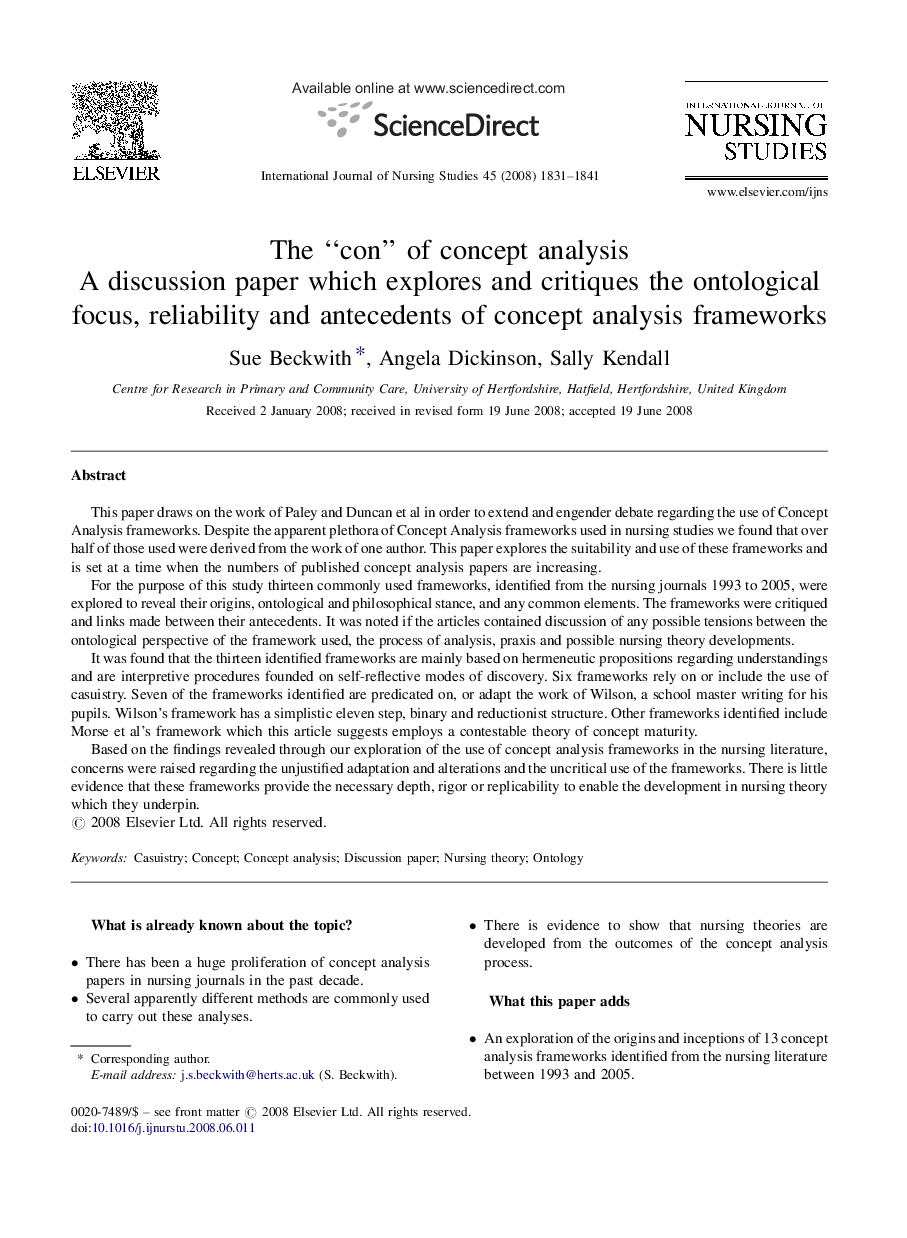| Article ID | Journal | Published Year | Pages | File Type |
|---|---|---|---|---|
| 1077381 | International Journal of Nursing Studies | 2008 | 11 Pages |
This paper draws on the work of Paley and Duncan et al in order to extend and engender debate regarding the use of Concept Analysis frameworks. Despite the apparent plethora of Concept Analysis frameworks used in nursing studies we found that over half of those used were derived from the work of one author. This paper explores the suitability and use of these frameworks and is set at a time when the numbers of published concept analysis papers are increasing.For the purpose of this study thirteen commonly used frameworks, identified from the nursing journals 1993 to 2005, were explored to reveal their origins, ontological and philosophical stance, and any common elements. The frameworks were critiqued and links made between their antecedents. It was noted if the articles contained discussion of any possible tensions between the ontological perspective of the framework used, the process of analysis, praxis and possible nursing theory developments.It was found that the thirteen identified frameworks are mainly based on hermeneutic propositions regarding understandings and are interpretive procedures founded on self-reflective modes of discovery. Six frameworks rely on or include the use of casuistry. Seven of the frameworks identified are predicated on, or adapt the work of Wilson, a school master writing for his pupils. Wilson's framework has a simplistic eleven step, binary and reductionist structure. Other frameworks identified include Morse et al's framework which this article suggests employs a contestable theory of concept maturity.Based on the findings revealed through our exploration of the use of concept analysis frameworks in the nursing literature, concerns were raised regarding the unjustified adaptation and alterations and the uncritical use of the frameworks. There is little evidence that these frameworks provide the necessary depth, rigor or replicability to enable the development in nursing theory which they underpin.
